What Low Hair Porosity Is (And How to Care for It), According to an Expert
Identifying and caring for this common hair type.
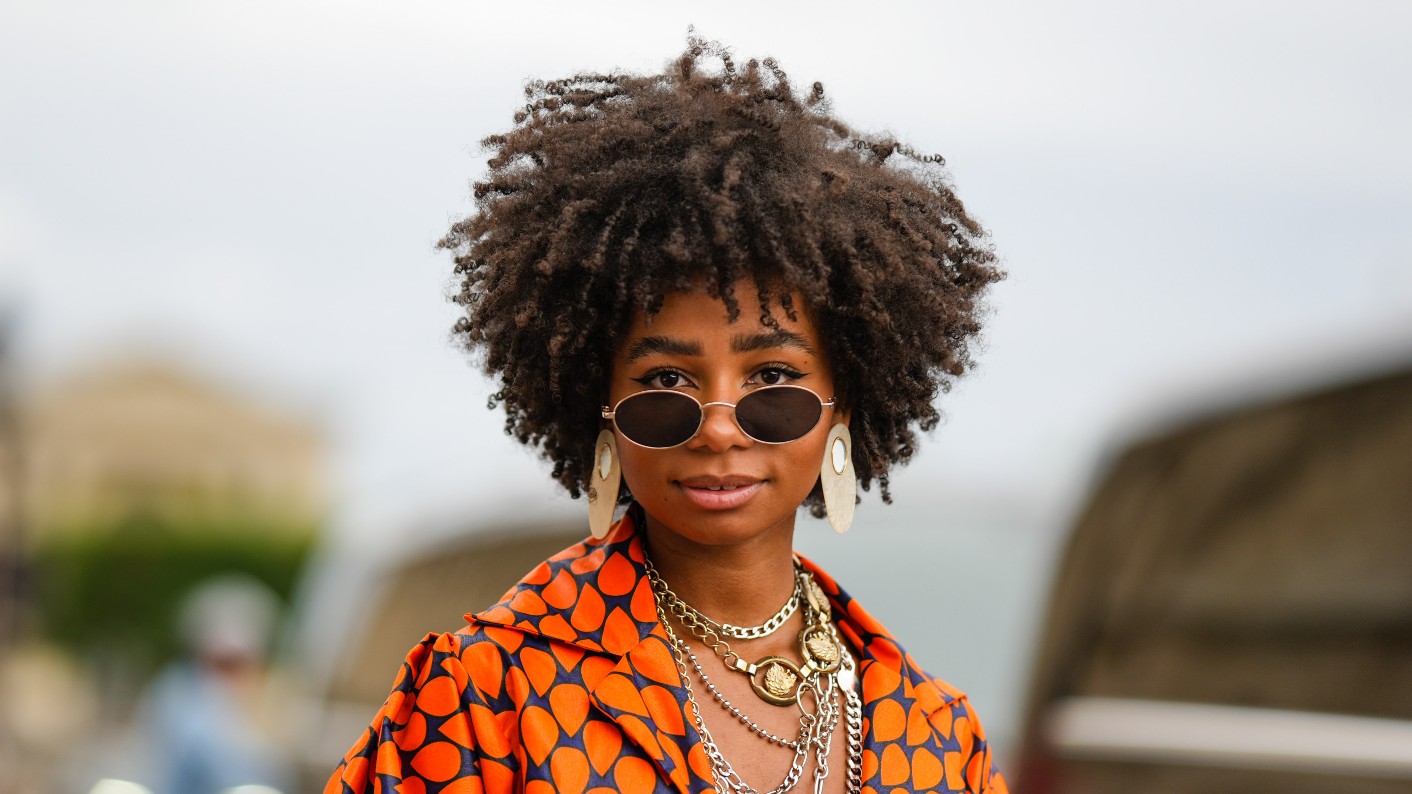

When it comes to the care and keeping of hair—especially natural hair—there's far more to be concerned with than simply finding the right shampoo and conditioner. Great haircare is also about crafting a personalized routine that fosters scalp health, hydrated strands, and consistent hair growth. And in finding this routine, it's helpful to know about the needs of your hair and scalp, including whether your hair is low porosity or high porosity.
"Porosity is the ability of the hair to absorb liquid," explains Alicia Bailey, a licensed master cosmetologist and the CEO and Global Hair Education Director of Iman Yvonne Beauty. "Hair that has low porosity has a tight cuticle layer, which makes it slightly harder to absorb water, products, and various chemicals."
Because of its unique characteristics, people with low porosity hair should gravitate towards certain products, ingredients, and practices, while staying away from others. Below, Bailey breaks down everything the low porosity hair owner needs to know about keeping those strands hydrated and healthy.
Testing Hair Porosity
Identifying hair porosity isn't as easy or obvious as identifying one's curl pattern, hair thickness, or hair color—but that doesn't mean it has to be difficult. In fact, you can determine your hair porosity in a matter of seconds with one popular, tried-and-true test that involves only a cup of water and a piece of hair.
First, wash your hair to ensure it's free of buildup and dirt. Then, after you've brushed it (but before you apply leave-in or styling products!), take a piece of hair from your brush, drop it in a glass of water, and wait awhile.
After a few minutes, check the hair: If it floats, you have low porosity hair, and if it sinks, you have high porosity hair. It's easy as that!
Caring for Low Porosity Hair
Once you know that you have low porosity hair, the next step is to learn how to take care of it. This includes following universal tips like eating healthy, staying hydrated, washing hair as needed, and avoiding hair treatments or styles that damage or break hair. But there are also more specific products and routines to keep in mind when taking care of this often curly hair type.
Get exclusive access to fashion and beauty trends, hot-off-the-press celebrity news, and more.
"Hydrate the hair by incorporating conditioner, but accompanying the conditioner with heat," suggests Bailey. "The heat can be applied by using a plastic cap over the hair under a pre-heated hooded dryer, or a steamer without a cap. The heat allows the cuticle to expand and allows the conditioner to penetrate the hair strands."
Allow the conditioner to sit so that it has time to penetrate and deeply nourish hair. Then, she says, "I like to rinse the conditioner out with tepid water to help the cuticle close to lock in the much-needed moisture."
Furthermore, she recommends that people with low porosity hair opt for lightweight products rather than heavy ones, explaining that the latter option can "create a barrier and sit on top of the hair, making it difficult for the hair to absorb moisture." Similarly, she says to steer clear of silicones, which can lead to buildup, and to avoid high-protein treatments and products, because "adding additional protein to this hair type could cause the hair to become hard and will leave the hair more susceptible to breakage."
Below, products that do wonders for low porosity hair.
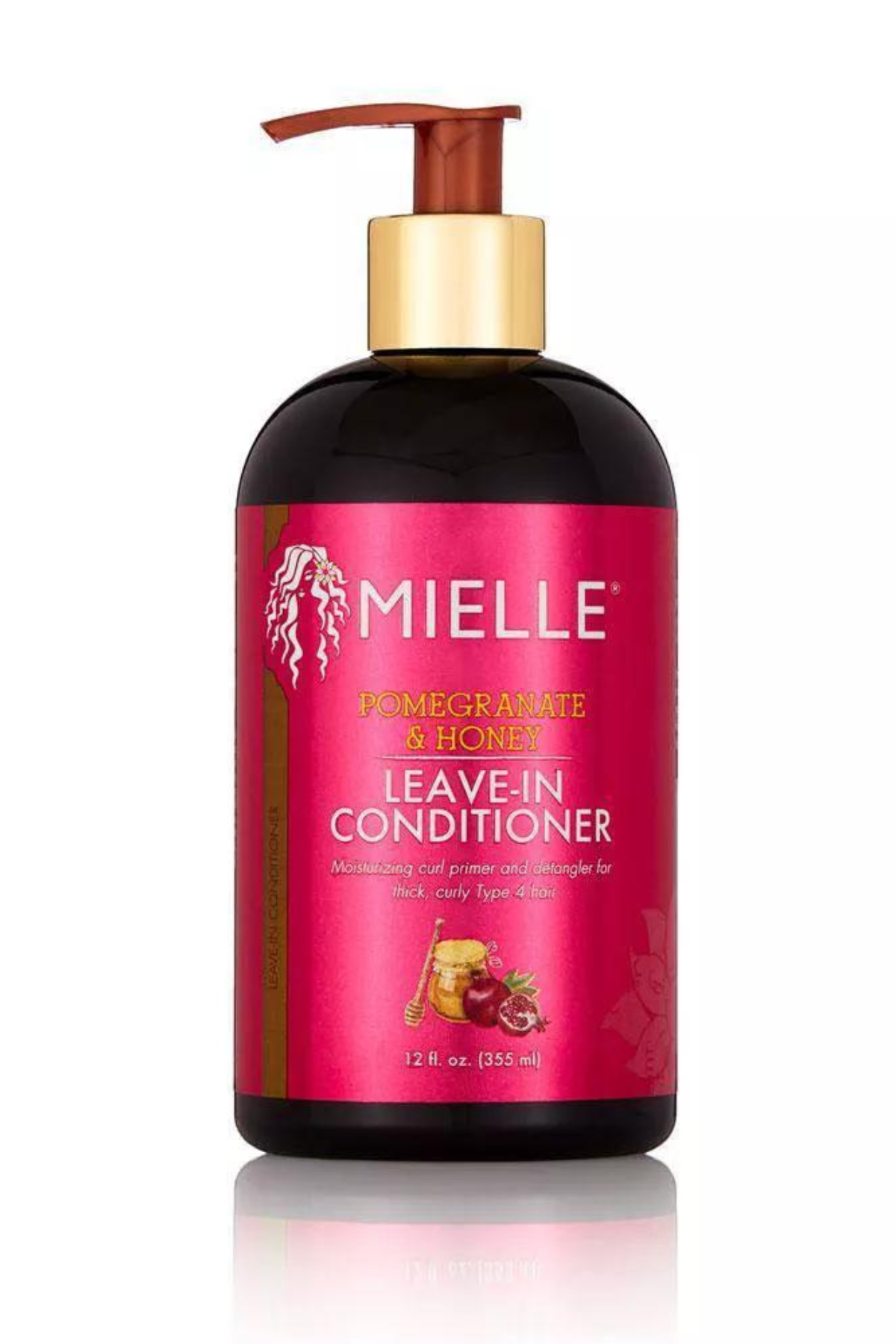
Bailey loves the Mielle Organics Detangling Moisturizing and Detangling Pomegranate & Honey Collection, which is filled with natural ingredients like citrus extract, babassu oil, pomegranate extract, and honey, all of which work to hydrate hair and define curls. The entire collection is cruelty-free, sulfate-free, and crafted with hair types 3 and 4 in mind. It’s also lightweight, so those with low porosity hair won’t need to worry about buildup or feeling their hair weighed down.
Pros: expert-approved; made with natural ingredients; free of parabens, sulfates, and dyes; cruelty-free; made with curls in mind; affordable
Cons: strong scent
Customer Review: "Smells like I’ve transformed into some kind of well-paid hair model. It’s not a very strong smell once it’s on your hair, and it smells like luxury. It immediately made my hair so much softer. I bought it, put some in my hands, added some water to thin it out, then ran my fingers through my dry hair. Then let it air dry for a few minutes…was pleasantly shocked at how it completely changed my hair! It was all of a sudden SO soft and smooth. I have low porosity fine 2B type hair that’s been damaged by protein overload. I love that this formula doesn’t have protein." -Target
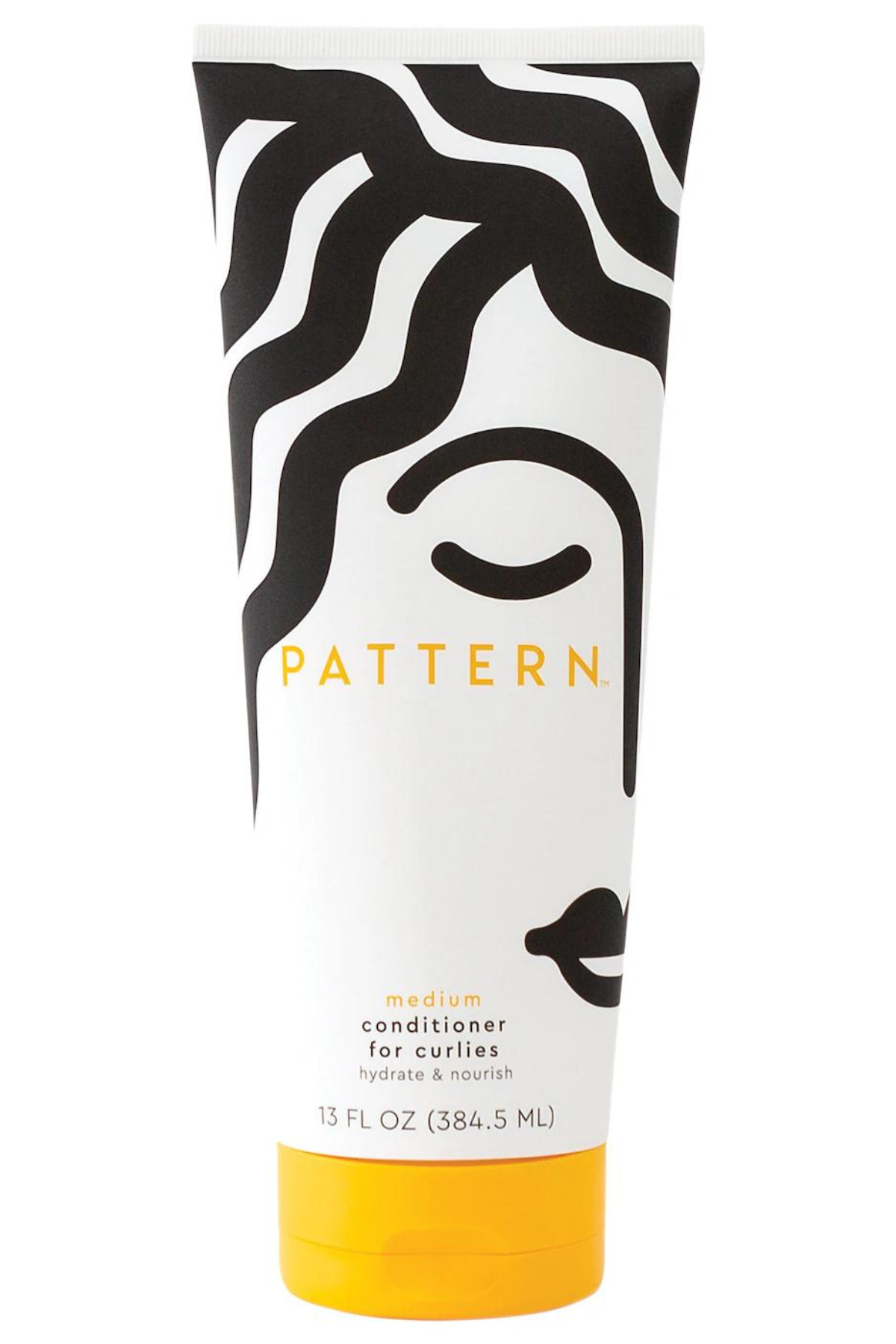
When it comes to conditioning low porosity hair, Bailey recommends this medium conditioner from Tracee Ellis Ross’ brand PATTERN Beauty. Made with curls in mind, it’s designed to tame frizz while enhancing users’ natural curl patterns and combatting dryness. It’s also specifically formulated for low to normal porosity hair, so you can rest assured that it will meet your hair type’s specific needs without causing breakage or damage. Plus, it features a fresh, subtle scent that customers love.
Pros: free of sulfates, SLS, SLES, and parabens; tames frizz; moisturizing; made with low porosity hair in mind; softening; expert-approved
Cons: none found
Customer Review: "I have been searching high and low for a conditioner that works for my hair, and I'm so glad I finally found this! My hair was very dry, and the curls were flat, and losing definition, but one wash with this and I could see immediate results, the definition in my curls was revived." -Sephora

This shower cap was made to protect blowouts from steam and moisture, but because of its ability to keep hair firmly locked within (due in part to its terry cloth lining), it’s also optimal for locking in moisture when you’re drying your low porosity hair. It’s spacious and flexible, promising to work effectively on all hair types, curl patterns, and lengths. Plus, it’s long-lasting, so you can ditch those disposable, unsustainable options that rip after just a few uses.
Pros: lined with cotton for a comfortable fit; keeps hair securely inside
Cons: must be washed frequently
Customer Review: "Have been using this shower cap for years and won’t use anything else. It lasts a long time and can easily be thrown in the wash. I also think the price point is great compared to other brands." -Sephora
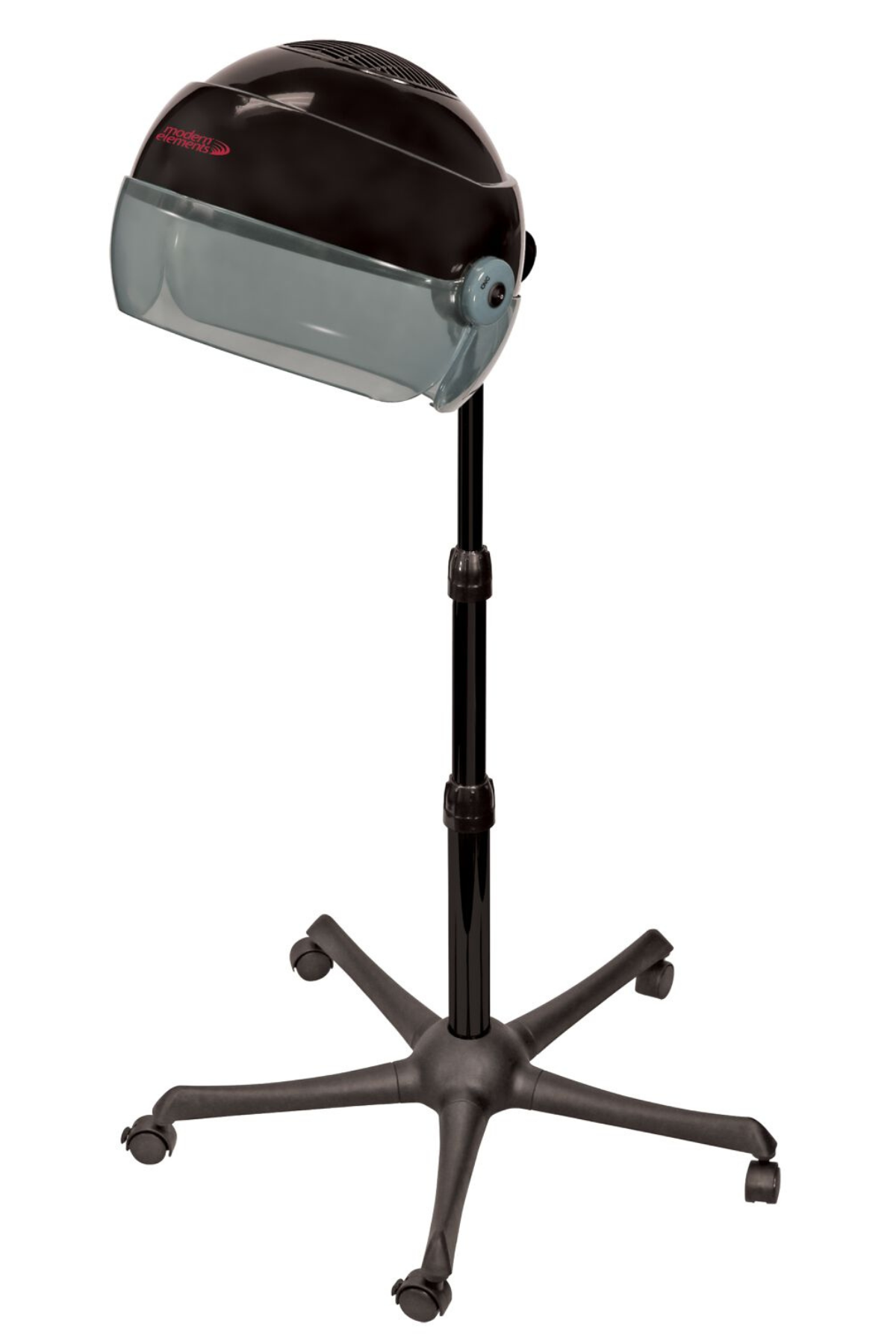
If you're looking to give yourself the salon treatment in the comfort of your own home, look no further than this hooded tourmaline dryer, which conveniently comes on wheels so you can roll it around your home and tuck it away when it's not in use. Drying your hair with this gadget minimizes frizz, optimizes moisture retention, and ensures that your low porosity locks are well taken care of whether you can make it to a hair appointment or not.
Pros: ideal for low porosity hair and curls; minimizes frizz; moisturizes hair
Cons: large
Customer Review: "I love my new dryer!!! It’s not as loud as my tabletop one was. And it doesn’t get unbearably hot...My favorite feature is being able to lift the visor to turn it on and off." -Sally Beauty
Meet the Expert
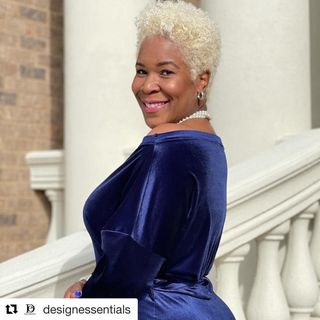
Alicia Bailey is a licensed master cosmetologist and the CEO and Global Hair Education Director at Iman Yvonne Beauty with over 30 years of experience. She is also an author, life coach, and public speaker, and has owned salons such as Flawless Sessions Hair Salon in Georgia and Flawless Unisex Hair Salon in Hampton, Virginia. She has also worked as an educator for McBride Research Laboratories since 1999, and has worked with a number of women's magazines to promulgate education about black haircare.
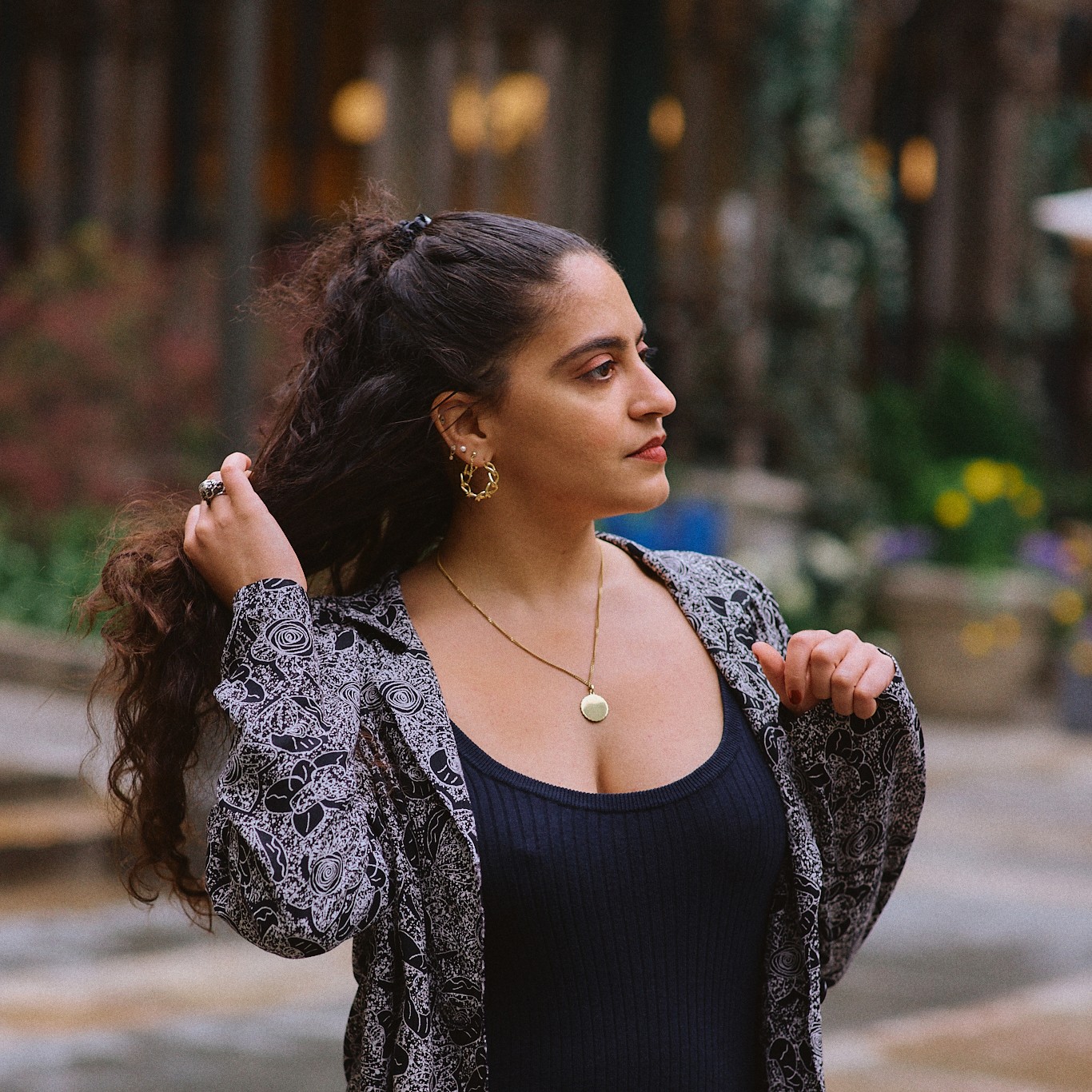
Gabrielle Ulubay is a Beauty Writer at Marie Claire. She has also written about sexual wellness, politics, culture, and fashion at Marie Claire and at publications including The New York Times, HuffPost Personal, Bustle, Alma, Muskrat Magazine, O'Bheal, and elsewhere. Her personal essay in The New York Times' Modern Love column kickstarted her professional writing career in 2018, and that piece has since been printed in the 2019 revised edition of the Modern Love book. Having studied history, international relations, and film, she has made films on politics and gender equity in addition to writing about cinema for Film Ireland, University College Cork, and on her personal blog, gabrielleulubay.medium.com. Before working with Marie Claire, Gabrielle worked in local government, higher education, and sales, and has resided in four countries and counting. She has worked extensively in the e-commerce and sales spaces since 2020, and spent two years at Drizly, where she developed an expertise in finding the best, highest quality goods and experiences money can buy.
Deeply political, she believes that skincare, haircare, and sexual wellness are central tenets to one's overall health and fights for them to be taken seriously, especially for people of color. She also loves studying makeup as a means of artistic expression, drawing on her experience as an artist in her analysis of beauty trends. She's based in New York City, where she can be found watching movies or running her art business when she isn't writing. Find her on Twitter at @GabrielleUlubay or on Instagram at @gabrielle.ulubay, or follow her art at @suburban.graffiti.art